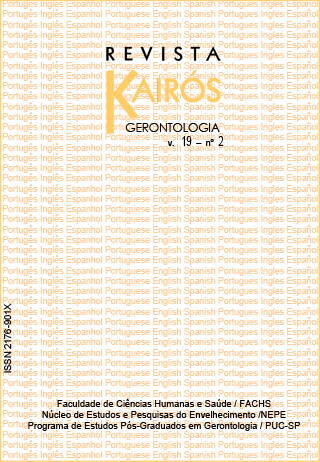Cuidando do paciente com Síndrome Demencial: a sobrecarga do cuidador principal
DOI :
https://doi.org/10.23925/2176-901X.2016v19i2p309-325Mots-clés :
Cuidado, Cuidador principal, Síndrome Demencial.Résumé
O processo de envelhecimento acarreta ao indivíduo mudanças fisiológico-funcionais, com crescimento da demanda do cuidado, decorrente das limitações e perda da capacidade funcional. Ocorre aumento das doenças crônico-degenerativas, como as demências, caracterizadas por síndromes de etiologias diversas, cujo aspecto fundamental é o prejuízo da memória, e de, pelo menos, outra função cognitiva (linguagem, praxia, gnosia ou funções executivas), comprometendo o funcionamento ocupacional ou social, representando declínio funcional. Quanto maior a dependência de um indivíduo, maior a sobrecarga do cuidador; daí, ser importante considerar a sobrecarga como aspecto merecedor de investigação detalhada para guiar uma intervenção que auxilie no processo de cuidar. Objetiva este estudo verificar se há associação entre o nível de sobrecarga e as variáveis sócio-demográficas, clínicas e psico-cognitivas de cuidadores e pacientes idosos com Síndrome Demencial. Estudo analítico, de corte transversal, amostra por conveniência, com 20 cuidadores de idosos com SD. Concluiu-se que os maiores níveis de sobrecarga estão em cuidadores de idosos com SD e doença pulmonar, sem vida conjugal, do sexo feminino, aos quais se associam a irritabilidade e grau de parentesco com o dementado; os filhos, com os maiores níveis. Menor sobrecarga nos cuidadores que praticavam atividade física e sem histórico de queda.


